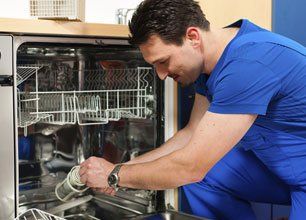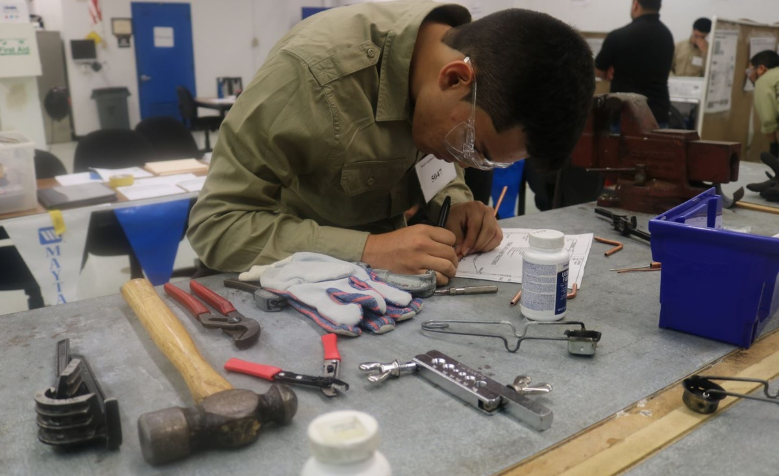Why Refrigerator repair experts Dependable Refrigeration & Appliance Repair Say Energy Spikes Could Mean a Failing Fridge
Why Refrigerator repair experts Dependable Refrigeration & Appliance Repair Say Energy Spikes Could Mean a Failing Fridge
Blog Article
Vital Tips for Effective Ref Repair to Extend Appliance Lifespan
When it comes to your refrigerator, correct repair service and maintenance are vital for long life. Recognizing common troubles and recognizing when to act can make all the distinction.
Comprehending Common Fridge Problems
Fridges are crucial in maintaining your food fresh, yet they can come across a variety of usual issues that interrupt their performance. If you notice food ruining quicker than normal, inspect the thermostat settings or take into consideration if the door seals are harmed. Recognizing these problems early can save you time and money in repair services, ensuring your refrigerator runs smoothly and successfully.
Regular Maintenance Practices
To keep your home appliances running smoothly, you require to remain on top of normal maintenance methods. Tidy the condenser coils, inspect the door seals, and check the temperature level setups to assure peak performance. These straightforward tasks can save you money and time on repairs down the line.
Clean Condenser Coils Routinely
Cleansing your condenser coils on a regular basis can greatly enhance your appliance's effectiveness. Dirt and dirt develop up on these coils over time, causing your home appliance to work more difficult and take in even more energy. To keep them clean, unplug your appliance and thoroughly remove any kind of safety covers.
Check Door Seals
3 straightforward steps can help you guarantee your device's door seals are in excellent problem. 2nd, tidy the seals utilizing cozy, soapy water to remove any type of particles or crud. By complying with these actions, you'll maintain your device's effectiveness and long life, saving you cash on energy bills and repair services in the lengthy run.
Display Temperature Settings
Frequently monitoring your appliance's temperature level setups is crucial for ideal efficiency and efficiency. Whether you're dealing with a fridge, fridge freezer, or stove, maintaining an eye on these settings can protect against many problems. For refrigerators, go for temperatures between 35 ° F and 38 ° F; for freezers, remain 0 ° F. If the temperatures are expensive or reduced, your home appliance might work harder, wasting energy and reducing its life-span. Make use of a thermostat to inspect these setups regularly, particularly after major modifications, like moving your device or readjusting the thermostat. If you observe changes, adjust the setups appropriately and speak with the customer manual for guidance. By remaining aggressive about temperature level monitoring, you'll assure your appliances run smoothly and last longer.
Repairing Air Conditioning Problems
When your fridge isn't cooling correctly, it can bring about ruined food and squandered cash, so addressing the issue immediately is essential. Beginning by inspecting the temperature setups to confirm they go to the recommended degrees, typically around 37 ° F for the refrigerator and 0 ° F for the freezer. If the setups are appropriate, examine the door seals for any kind of gaps or damage; a malfunctioning seal can allow cozy air to go into.
Next, examine the vents inside the fridge and freezer. Verify they're not obstructed by food things, as this can disrupt airflow. Pay attention for the compressor; if it's not running or making uncommon noises, it might need attention. Ultimately, inspect the condenser coils, generally situated at the back or base of the system. Dirt and debris can collect, causing cooling concerns. Clean them with a vacuum cleaner or brush to maximize performance. If problems persist, it could be time to call an expert.
Repairing Water Leakage and Ice Accumulation
If you're dealing with water leakage or ice build-up in your appliance, it's vital to identify the source of the issue. By identifying where the water is originating from, you can protect against more concerns and prevent costly repair work. Let's discover some reliable strategies to deal with these common issues.
Determine Leak Sources
How can you efficiently recognize the resources of water leak and ice build-up in your appliances? Begin by inspecting the seals and gaskets on your refrigerator and freezer doors. A worn or broken seal can allow warm air to enter, causing condensation and ice. Next off, check the drain frying pan and water drainage system for blockages or obstructions; a backed-up drainpipe can result in water merging. Search for any loosened links in the water supply line, which can create leakages. Also, examine the defrost drainpipe for ice build-up, which can interfere with appropriate water drainage. By systematically inspecting these locations, you'll pinpoint the resource of the issue, permitting you to take the required steps to repair it and extend your device's life-span.
Stop Ice Development
To avoid ice formation in your devices, beginning by verifying the temperature he has a good point setups are ideal. If your fridge or fridge freezer is too cool, it can cause too much ice accumulation. Examine the door seals regularly; damaged seals can let cozy air in, creating condensation and ice formation.
Maintain the appliance well-ventilated and stay clear of overcrowding, as this can block airflow - Washing Machine Repair Dependable Refrigeration & Appliance Repair Service. Also, regularly defrost your fridge freezer if it doesn't have an automatic defrost attribute.
If you discover water leak, identify and repair any type of blocked drain holes, as they can add to ice build-up. Lastly, clean the coils and confirm they're working appropriately to preserve peak performance. Taking these actions will certainly aid prolong your home appliance's life expectancy and performance.
Addressing Noisy Refrigerator Appears
While it may seem disconcerting, a loud fridge commonly signals minor concerns rather than major breakdowns. Recognize the resource of the noise. Usual perpetrators consist of the compressor, fans, and water lines. If you listen to a buzzing sound, it may be the compressor striving; this might simply be a regular operation audio.
Following, inspect for loose things inside. Often, containers or racks can rattle, creating undesirable noise. Tighten up or rearrange them to remove the sounds.
If you see a clicking noise, it might be the defrost timer. This is generally harmless however might show it needs evaluation.
Lastly, validate your fridge is level. An out of balance device can create vibrations and sound. Utilize a level to examine, and change the feet if try this web-site required. Addressing these problems without delay can assist maintain your refrigerator's efficiency and prolong its lifespan.
When to Change Parts vs. Complete Replacement

However, if your appliance is older and experiencing multiple problems, a complete substitute might be much more economical. Consider the cost of repairs versus the appliance's worth. If repair services go beyond 50% of a brand-new device's rate, it's usually smarter to purchase a replacement. In addition, if you discover ongoing issues that keep recurring, it's an indicator that your device has actually reached completion of its life. Weigh these factors carefully to make the very best choice for your needs and budget.
Understanding When to Call a Specialist
Just how can you tell when it's time to contact an expert for home appliance repair work? If you see uncommon sounds, smells, or leakages, it's a clear signal that something's incorrect. Do not ignore these signs; they usually indicate deeper issues. If your home appliance quits functioning completely or often trips breaker, it's one more red flag.
You should additionally consider your own comfort level with fixings. If you're not sure about identifying the trouble or do not have the right tools, it's best to get to out for aid. Bear in mind, attempting complicated repair services can lead to even more damages or also safety dangers.

Frequently Asked Questions
Just how Commonly Should I Clean the Refrigerator Coils?
You must cleanse your fridge coils every 6 months. This aids additional reading maintain efficiency and protects against getting too hot. If you notice too much dust or pet hair, tidy them much more often to ensure your fridge runs efficiently.

Can I Utilize Vinegar for Cleansing My Refrigerator?
Yes, you can use vinegar to cleanse your fridge! It's an excellent all-natural cleanser that removes smells and spots. Washing Machine Repair Dependable Refrigeration & Appliance Repair Service. Just blend it with water, apply it to surfaces, and clean down for a fresh, clean refrigerator
What Temperature Should My Refrigerator Be Ready To?
You must set your fridge to 37 ° F(3 ° C) for ideal food preservation. This temperature maintains your food fresh while preventing putridity, guaranteeing your groceries last much longer and reducing waste. It's a very easy modification you can make!
Does a Refrigerator Required to Be Leveled?
Yes, your refrigerator needs to be leveled. If it's irregular, it can impact cooling effectiveness and cause excess sound. Inspect the leveling legs and adjust them to guarantee correct equilibrium for excellent efficiency.
Just How Can I Reduce Fridge Power Consumption?
To reduce your fridge's energy usage, keep it tidy and well-ventilated, check door seals for leakages, set the temperature level between 35-38 ° F, and prevent overwhelming it. These actions can considerably reduce your energy bills.
Report this page